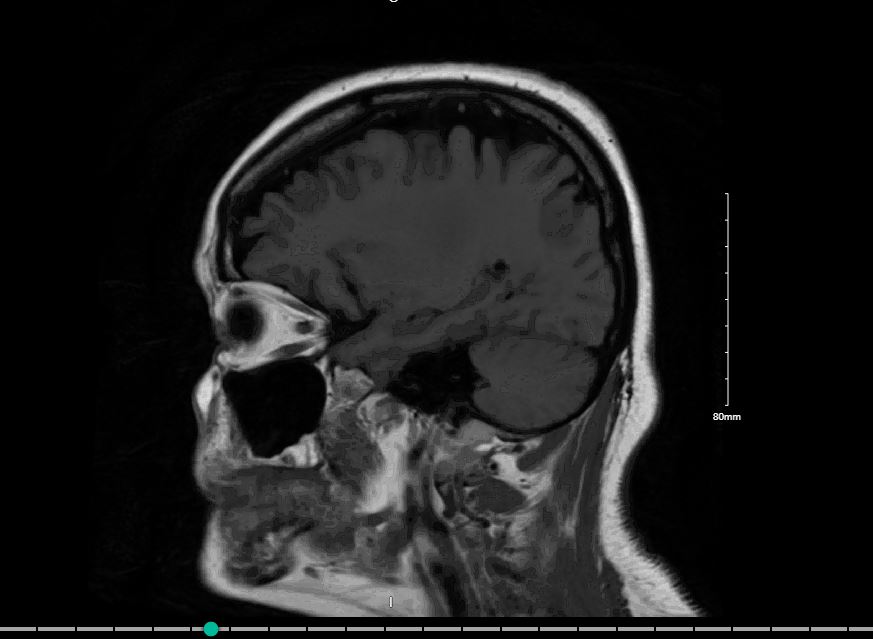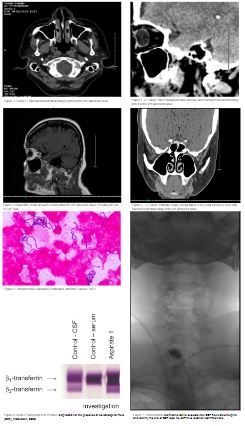Case Presentation: A previously healthy 50 year old female presented to the emergency department with abrupt onset of an intractable headache with altered mental status. On presentation, symptoms were pertinent for headache, neck pain, fever, nausea, and vomiting. Temperature was 103.1F, Heart rate 95 beats per minute (bpm), and blood pressure 102/71. Initial labs were within normal limits. On physical exam, patient exhibited moderate distress, altered mental status, positive brudzinski’s sign, and sinus tenderness. Lumbar puncture revealed colorless cloudy CSF with glucose 15, protein 41.6, TNC 1440. Head CT was significant for paranasal sinus disease and mucoperiosteal thickening noted in the left sphenoid sinus. Blood cultures revealed streptococcus salivarius/vestibularis. Patient was treated with Ceftriaxone 2g q12 hrs, Ampicillin 2g q4hrs, and Vancomycin. Clinical presentation improved significantly, although a colorless transparent rhinorrhea persisted after completion of initial antibiotic therapy. The aqueous nasal discharge was constant, worse on the left nostril than right, and exacerbated by standing upright, coughing, or sneezing. Beta 2 transferrin testing confirmed the rhinorrhea was CSF fluid. Surgical correction utilizing a transsphenoidal approach for repair of sphenoid sinus CSF leak with abdominal fat harvesting resulted in complete resolution of patient symptomatology.
Discussion: The initial presentation of a cerebral spinal fluid leak as a cause of altered mental status is an extremely rare cause of bacterial meningitis in adults. The cerebral fluid escaped the meningeal cavity through a sinus tract that developed between the left sinus cavity and the meninges. The cause of a sinus tract can be traumatic, pathologic, or idiopathic. It is important to recognize the cause of meningitis and treat promptly with antibiotic therapy until the sinus tract can be surgically corrected. Prolonged antibiotic therapy is necessary to avoid potentially fatal outcomes of meningitis reinfections. Thus, it is important to consider a CSF leak as a potential source of bacterial meningitis in otherwise healthy individuals who present with clinical symptoms suggestive of such.
Conclusions: Our patient presented with meningitis and was treated with antibiotic therapy. The rhinorrhea she was exhibiting was proven to be cerebral spinal fluid (CSF) and required surgical correction. While CSF leaks are exceedingly rare, a sinus tract can allow for bacterial entry into the central nervous system and can result in an opportunistic infection of typical host bacteria.


